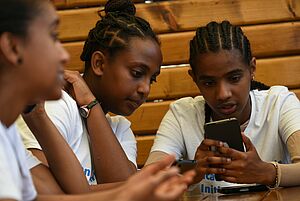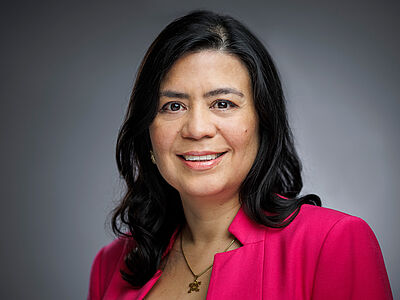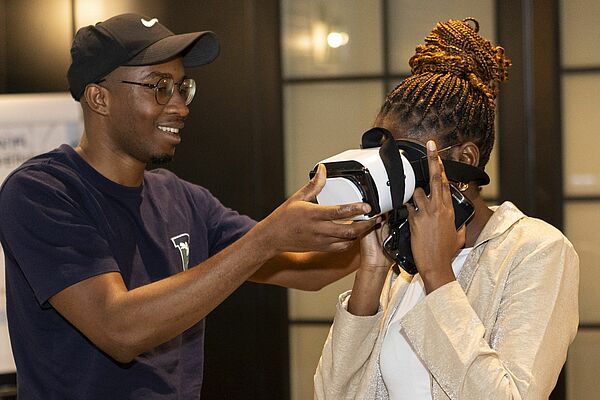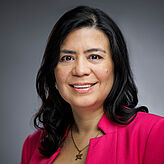Together with the organisation UN Women Germany, the Siemens Group is committed to training young women from African countries in digital skills. The aim of the African Girls Can Code initiative: To promote women, particularly in STEM fields, and to raise the potential of skilled labour in the Global South.
The success code for IT careers. The African Girls Can Code Initiative
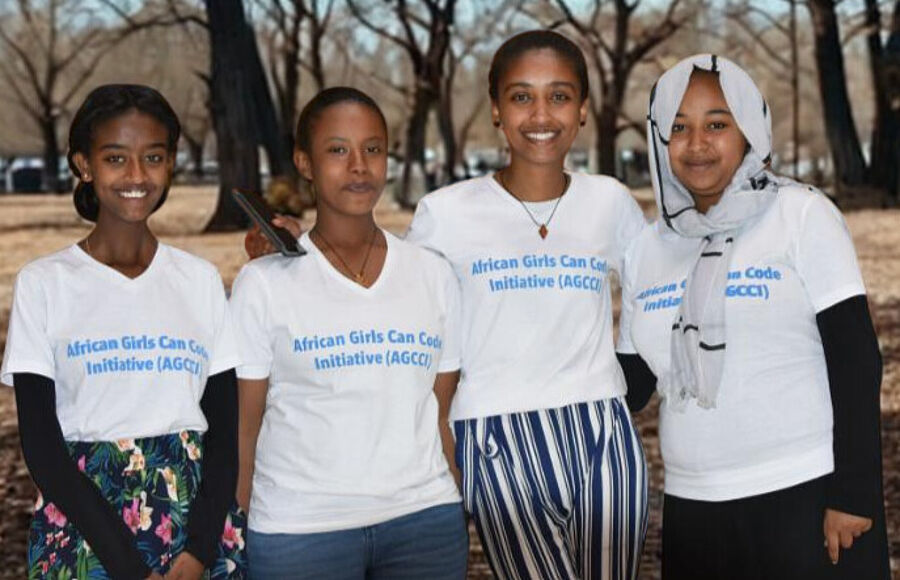
Coding camps for young women in Africa
Where there is a lack of IT specialists, there is a lack of innovative capacity. This applies to companies - and it applies to entire economies. So what could be more obvious than pooling the strengths of companies and state actors in order to build up a diverse, international talent pool of tech-savvy young professionals?
The African Girls Can Code Initiative (AGCCI) offers companies an opportunity to do just that as part of international cooperation. The initiative brings together private and state actors to prepare young women in several African countries for training or studies in STEM subjects.
One of the partners on the corporate side: the Siemens Group. 'For Siemens, our involvement in African Girls Can Code is a unique opportunity to combine a large part of our ambitions: Promoting women, training the next generation of tech talent and building digitalisation skills locally,' says Katja Ploner, Corporate DEI Advisor at Siemens, explaining the global technology company's commitment. Siemens aims to employ some of the young participants as specialists in its own company once they have successfully completed the programme.
Talent pool for the digital economy
The coding camps are the centrepiece of the initiative, which was originally launched in 2018. The two-week full-time training camps, which have been supported by Siemens since 2022, teach more than 900 young women aged between 17 and 25 the basics of coding and software design. Other topics include robotics, the Internet of Things and 3D printing as well as leadership techniques. Educational content on the empowerment of women in tech professions is also included. The aim is to discover talent, develop skills and knowledge and inspire women in particular to pursue careers in the IT sector.
Participants of previous camps report on the success of the programme: 'The AGCCI Coding Camp was a life changer and had a decisive impact on my perception of career options in the tech sector,' says Annagrace Malamsha, for example. The young pharmacist from Tanzania works in the digital economy after attending a coding camp thanks to the knowledge she gained there.
Siemens has so far provided over 1 million euros for the coding camps, which take place in Kenya, Rwanda, Senegal, South Africa and Uganda. The money goes towards laptops for the participants, training content and technical support.
Investing in the future
An important success factor for the initiative is the mentoring programme. Participants in the coding camps are supported by mentors from the company for six months and in some cases remain in contact afterwards - simply via WhatsApp.
This benefits not only the participants, but also the company, reports Katja Ploner: 'Our mentors speak enthusiastically about the programme. Not only do they enjoy sharing their personal experiences with the young women from other cultures, but they also report that they themselves learn a lot from their young mentees.' Participation in the initiative also creates a good atmosphere and new vigour among the experienced professionals.
One of the mentors from the Siemens Group is Petra Čapáková. She sees her involvement in the initiative as an investment in the future of her team: 'These young women have fresh ideas, they have something to contribute. And if they actually work for us at the end of the programme, it will be much easier to integrate them into our teams.'
Contact
Companies interested in supporting the African Girls Can Code Initiative and the Siemens mentoring programme can contact Silvia Fullenkamp, who is responsible for corporate cooperation at UN Women Germany, at s.fullenkamp(at)unwomen.dein Verbindung setzen.
Published on
